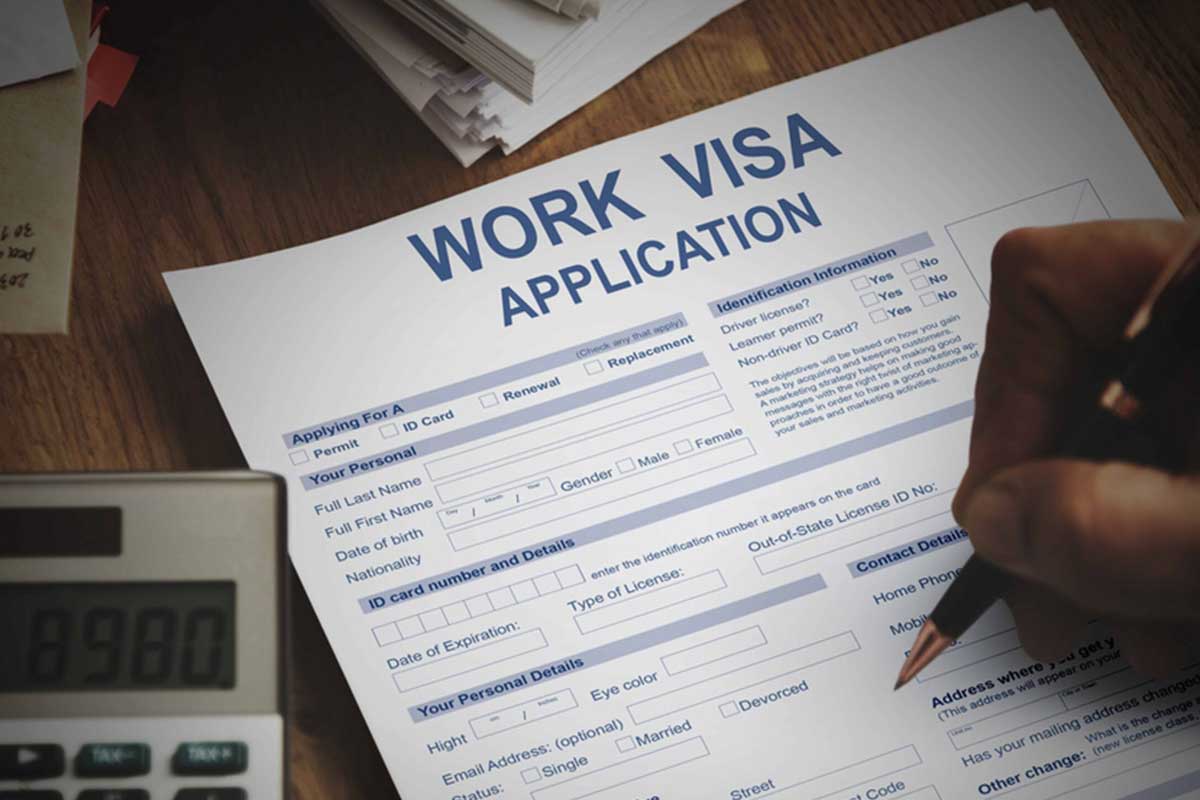
Work Visa
A Work Visa is a type of visa that allows foreign nationals to enter and remain in a country for the purpose of working. Work visas are typically issued for specific employment opportunities and may be limited by the type of job, the employer, or the duration of the stay. Here’s an overview of the work visa, including key information:
1. Types of Work Visas
Work visas generally fall into different categories based on the type of employment and the length of stay. Common types include:
- Temporary Work Visa: Issued for short-term work assignments. These are typically valid for a few months to a few years and are tied to a specific job or employer.
- Permanent Work Visa: Issued for individuals seeking to work and settle permanently in a country. This is often associated with employer sponsorship and can lead to permanent residency.
- Skilled Worker Visa: Designed for highly skilled individuals who can fill positions that require specific expertise, education, or experience.
- Intra-company Transfer Visa: Issued to employees of multinational companies who are transferring from a foreign branch to a branch within the country.
- Seasonal Work Visa: For jobs that are seasonal, such as in agriculture, tourism, or hospitality.
- Working Holiday Visa: Offered by certain countries, allowing young travelers to work while exploring the country for a specific period.
- Entrepreneur Visa: Issued for individuals who want to establish or manage a business in the country.
2. General Requirements for a Work Visa
While specific requirements vary by country, here are some common criteria needed to apply for a work visa:
- Job Offer: You typically need to have a valid job offer from a company or employer in the country. The employer may need to demonstrate that they could not find a local candidate for the position.
- Work Contract or Employer Sponsorship: In many cases, the employer must sponsor the visa application, proving the need for a foreign worker.
- Proof of Qualifications and Experience: Documentation of your educational qualifications, work experience, and professional certifications related to the job.
- Valid Passport: A passport with sufficient validity for the duration of your stay and often a few months beyond the intended departure date.
- Financial Proof: Evidence that you will be able to support yourself financially during your stay, or a confirmation that your employer will provide adequate compensation.
- Health Insurance: Some countries require proof of health insurance coverage while you are working there.
- Language Proficiency: Depending on the country and the nature of the job, you may need to prove proficiency in the local language (e.g., English, French, etc.).
- Application Fee: Most countries charge a fee for processing work visa applications.
3. Application Process
The work visa application process generally follows these steps:
- Job Search & Job Offer: First, you need to find employment in the country where you intend to work. Your employer may be required to demonstrate that no local workers are available for the position.
- Visa Sponsorship: Once you have a job offer, your employer may need to submit documentation to the immigration authorities, verifying the need for foreign workers.
- Gather Documentation: You will need to collect all required documentation, including your passport, job offer letter, proof of qualifications, financial evidence, and any other documents required by the country.
- Submit Application: Submit your completed work visa application to the country’s embassy, consulate, or through an online application portal.
- Attend an Interview (if required): Some countries require a visa interview, while others may process your application without one.
- Wait for Processing: Wait for your visa to be processed, which can take anywhere from a few weeks to a few months, depending on the country and visa type.
- Receive Visa: If approved, you will receive a work visa that allows you to legally enter and work in the country.

4. Duration of Stay
The duration of a work visa depends on the specific type of visa and the terms of your employment contract. Typically, work visas are granted for:
- Short-term assignments: Often lasting a few months to a year.
- Long-term employment: Can be extended, and in some cases, it can lead to permanent residency or citizenship.
- Permanent work visas: In cases where you qualify for permanent residency or citizenship through employment, the work visa may transition to permanent status.
5. Benefits of a Work Visa
A work visa provides several benefits:
- Legal Employment: It grants you the legal right to work in the country for a specified period.
- Social Benefits: In some countries, work visa holders may also access benefits like healthcare, pension plans, or paid leave.
- Family Accompaniment: Many work visas allow the visa holder’s spouse and children to accompany them, with certain rights to work or study.
- Pathway to Permanent Residency: For many countries, holding a work visa for a set period may provide a pathway to permanent residency or citizenship.
- Work Flexibility: If granted a multiple-entry work visa, you may be able to travel freely in and out of the country during the visa validity period.
6. Common Countries for Work Visas
Here are some popular countries for work visas:
- United States: H-1B Visa for specialty occupations, L-1 Visa for intra-company transfers, and O-1 Visa for individuals with extraordinary abilities.
- Canada: Temporary Work Permit, Employer-Specific Work Permit, and Post-Graduation Work Permit (for international students).
- United Kingdom: Tier 2 (General) Visa for skilled workers.
- Australia: Temporary Skill Shortage (TSS) Visa (subclass 482) and Skilled Independent Visa (subclass 189).
- Germany: EU Blue Card for highly skilled workers.
- New Zealand: Essential Skills Work Visa.
- Singapore: Employment Pass for foreign professionals.
